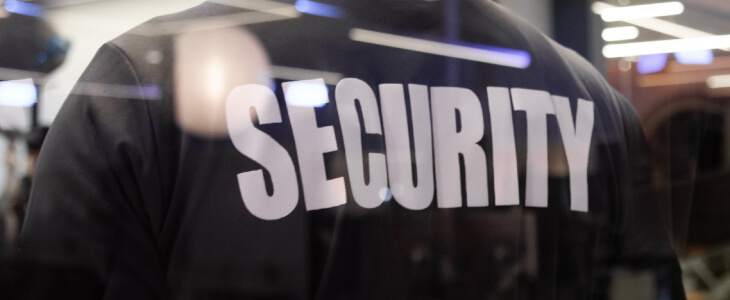The legal concept of inadequate security in Rhode Island falls under the broader legal framework of premises liability, which addresses the responsibilities of property owners and occupiers to ensure the safety of their premises for visitors, tenants, patrons, and sometimes trespassers. Inadequate security refers to the failure of property owners to provide reasonable measures to protect individuals from foreseeable harm or criminal acts, such as assault, theft, or vandalism, that occur on their property. Failure to provide reasonable measures would include a lack of security personnel, faulty locks, insufficient lighting, or inadequate response to known security threats. Property owners in Rhode Island are legally required to maintain a safe environment, and failing to do so can lead to personal injury actions if someone is injured or harmed due to their negligence. The legal obligations that arise can vary based on the type of property, the relationship of the injured party to the property, and the foreseeability of the criminal act.
Examples Of How Inadequate Security Could Lead To Injury
- Assaults and Robberies: If a property owner fails to provide adequate lighting, security cameras, or security personnel in areas known to be dangerous or in situations where there is a foreseeable risk of criminal activity, visitors may be more vulnerable to assaults, robberies, or other violent crimes.
- Slips and Falls: While not directly tied to security in the traditional sense, inadequate security measures can also mean a lack of monitoring or maintenance of the property, leading to hazardous conditions like slippery floors, broken railings, or obstructed pathways that can cause slips, trips, and falls.
- Sexual Assaults: Inadequate security measures, such as broken locks, lack of security cameras, or insufficient lighting, can increase the risk of sexual assaults on properties like hotels, college campuses, or apartment buildings.
- Parking Lot Injuries: Parking lots without proper lighting, surveillance, or patrol can become settings for vehicle break-ins, assaults, and accidents.
Property owners and managers in Rhode Island can be held liable for injuries caused by inadequate security, especially if the plaintiff can prove that the crime was foreseeable and reasonable security measures could have prevented the incident. Victims of crimes or accidents on someone else’s property might bring negligent security claims against the property owner. The victim would typically need to prove that the property owner knew or should have known about the potential for criminal activity and failed to take adequate steps to prevent it.
Suppose someone gets injured while on someone else’s property in Rhode Island due to inadequate security. In that case, they should consult a personal injury attorney experienced in premises liability law to evaluate their case and discuss potential legal options.
Elements of Premises Liability Law
Premises liability holds property owners and occupiers responsible for accidents and injuries on their property. The extent of the owner’s liability depends on the visitor’s status: whether they are an invitee, licensee, or trespasser.
- Invitees enter the property for a purpose related to the owner’s business or an activity conducted on the property. Owners owe invitees the highest duty of care, which includes inspecting for unknown hazards, maintaining the property in a reasonably safe condition, and warning of any known dangers.
- Licensees enter the property for their purposes but with the owner’s permission. The owner’s duty includes warning licensees of any known dangers the licensee is unlikely to discover on their own.
- Trespassers are individuals who enter the property without any right or permission. Owners generally owe trespassers the lowest duty of care, although they cannot willfully or wantonly injure them.
To succeed in a premises liability or inadequate security case in Rhode Island, the injured party must typically prove that the property owner knew or should have known about the hazardous condition or the crime risk and failed to take appropriate action. The plaintiff must also demonstrate that this negligence directly resulted in their injury. Rhode Island follows a “pure comparative negligence” rule, meaning that if an injured party is found to be partly at fault for their injuries, their compensation can be reduced to their degree of fault.
Contact a Rhode Island Premises Liability Lawyer
If you believe you have been injured due to inadequate security or another form of premises liability in Rhode Island, it would be advisable to consult with an experienced personal injury attorney. Palumbo Law has highly skilled attorneys who can provide advice specific to your case and help you understand your legal rights and options. Contact our office for an initial complimentary consultation.


